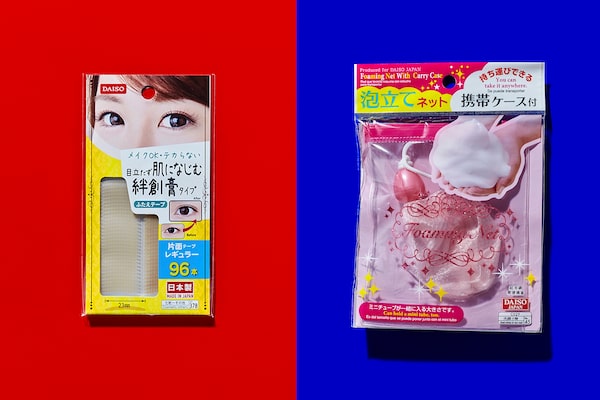There’s not much connecting face masks to fried-egg moulds to boxes of Pocky. But under the trendy umbrella of Japanese design, just about anything sells—cheaply—at the brightly lit, colour-coded Oomomo store in Toronto. Majority-owned by Vancouver’s Fairchild Group, Oomomo debuted in Edmonton in 2017; it now has two stores in Alberta, two in B.C. and this one, open since December. So far, it’s the largest, at 13,000 square feet (a few thousand more than a typical Dollarama), though a store in nearby Markham is expected to top 21,000 when it opens in June. By 2022, Oomomo expects to have 20 stores across the country.

Silicone fried-egg shaper, $2 and a dehumidifier sheet.

Double-folded eyelid tape, $2 and foaming net with case, $2.The Globe and Mail

Moko Moko Mokolet 7 candy, $7.50 and wasabi-flavoured KitKat, $15.

Mitsui Norinchu Nitto Tea-Amazake, $8 and Kracie Popin Cookin Doughnut DIY candy kit, $6.50.
It’s one of several “100-yen” retailers to hit Canada, including Daiso (with 5,050 stores globally but just one in Canada, in Richmond, B.C.) and Miniso, a Chinese-owned retailer with Japanese designs and 50 Canadian outlets. They’re thriving (even as Dollarama, with 1,225 stores, struggles) selling exclusive Japanese brands and an elevated experience.
“People are looking for affordable items, yet they want better quality,” says Mimi Lam, who manages Oomomo Toronto. “If you want quality, you’ll come to us, not Dollarama.” Oomomo carries a rainbow’s array of more than 22,000 products. Most sell for $2, though you’ll find $11 face masks and $8 jewellery stands on prominent display.
So how does this vast assortment fit with that other Japanese trend, the decluttering craze? “When you come here, you realize there are a lot of things you don’t need—but kind of need,” says Lam, pointing to a wall of plastic organizers. “We offer ways to help minimize your lifestyle.”

The Globe and Mail
Editor’s note: An earlier version of this article incorrectly said Daiso has only one outlet in North America. This version has been corrected.